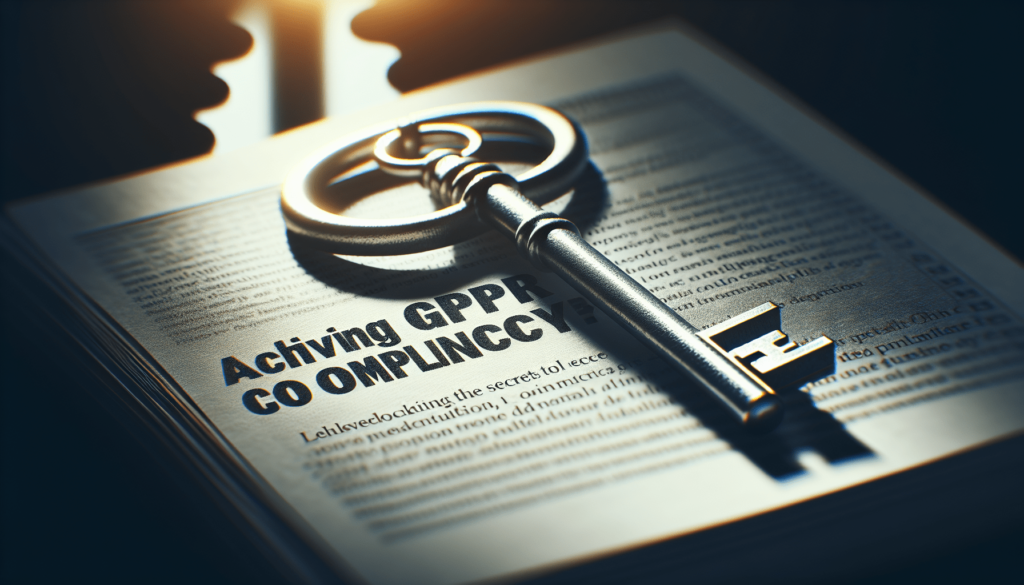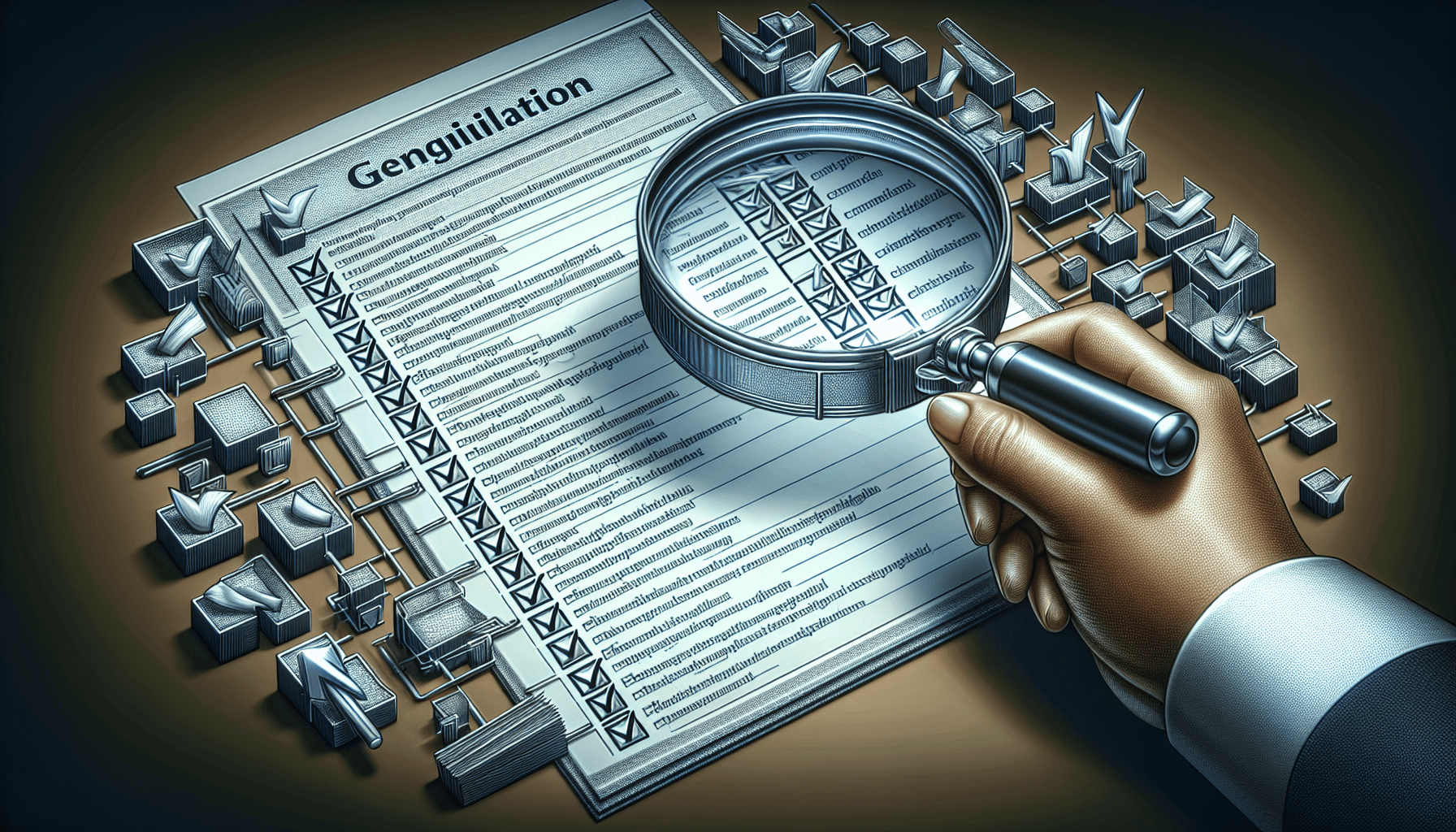In order to ensure your organization is fully adhering to the regulations set forth by the General Data Protection Regulation (GDPR), it is imperative to conduct regular compliance audits. These audits are essential in identifying areas of non-compliance and implementing corrective measures to prevent data breaches and penalties. By proactively conducting these audits, you can safeguard your organization from potential legal and financial repercussions, and demonstrate your commitment to protecting the privacy of individuals.
Compliance Audits: The Key To GDPR Compliance
Have you ever wondered what steps your organization needs to take to ensure compliance with the General Data Protection Regulation (GDPR)? In today’s digital age, data protection and privacy have become increasingly important.

Understanding GDPR Compliance
GDPR is a comprehensive data protection law that came into effect in May 2018, aimed at protecting the personal data of individuals residing in the European Union. It applies to all organizations that process personal data of EU residents, regardless of where the organization is located.
Ensuring GDPR compliance is crucial for your organization to avoid hefty fines and reputational damage. Compliance audits are a key component of fulfilling GDPR requirements and safeguarding personal data.
What is a Compliance Audit?
A compliance audit is a process where an independent auditor evaluates an organization’s operations, policies, and procedures to ensure they comply with relevant laws and regulations. In the context of GDPR compliance, a compliance audit assesses how your organization handles personal data and whether it meets the requirements set forth in the regulation.
Conducting regular compliance audits can help your organization identify weaknesses in data protection practices and take corrective actions to mitigate risks. By proactively assessing your GDPR compliance, you can demonstrate accountability and trustworthiness to your customers and stakeholders.
The Importance of Regular Compliance Audits
Regular compliance audits are essential for maintaining GDPR compliance as data protection practices evolve, and new threats emerge. By conducting audits at regular intervals, you can stay ahead of potential data breaches and ensure that your organization is up to date with regulatory requirements.
Additionally, regular audits help your organization demonstrate a commitment to data protection and privacy, enhancing your reputation and credibility with customers and regulatory authorities.
Conducting a GDPR Compliance Audit
To effectively conduct a GDPR compliance audit, you need to follow a structured approach that covers all aspects of data processing and protection within your organization.
Scope of the Audit
The first step in conducting a compliance audit is defining the scope of the audit. Determine the systems, processes, and data flows that will be included in the audit to ensure comprehensive coverage of your organization’s data processing activities.
Defining the scope helps you focus your audit efforts on high-risk areas and ensures that all relevant aspects of GDPR compliance are adequately addressed.
Data Mapping
Data mapping is a crucial step in a GDPR compliance audit, as it involves identifying all personal data processed by your organization. Create a detailed inventory of the types of personal data collected, the purposes for processing, and the parties involved in data processing.
By mapping out your data flows and identifying data processors and controllers, you can ensure that personal data is only processed in accordance with GDPR requirements.
Data Protection Measures
Assessing your organization’s data protection measures is an essential part of a GDPR compliance audit. Evaluate the effectiveness of security controls, encryption methods, access controls, and data retention policies to ensure that personal data is adequately protected.
Identifying gaps in data protection measures allows you to implement corrective actions and improve your organization’s overall data security posture.
Documentation Review
Reviewing your organization’s data protection policies and procedures is a critical aspect of a GDPR compliance audit. Ensure that you have documented processes for managing data subject requests, obtaining consent, and responding to data breaches.
Effective documentation is key to demonstrating compliance with GDPR requirements and providing evidence of your organization’s commitment to protecting personal data.
Employee Training
Employee awareness and training play a significant role in GDPR compliance. Ensure that your employees receive adequate training on data protection principles, GDPR requirements, and best practices for handling personal data.
Regular training sessions and awareness programs help employees understand their responsibilities and contribute to a culture of data protection within your organization.

Benefits of GDPR Compliance Audits
Conducting regular GDPR compliance audits offers numerous benefits for your organization beyond mere regulatory compliance.
Enhanced Data Protection
By proactively assessing your GDPR compliance through audits, you can identify vulnerabilities in data protection measures and implement corrective actions to strengthen your organization’s data security posture.
Regular audits help you stay abreast of evolving threats and data protection best practices, enabling you to better protect personal data and mitigate risks of data breaches.
Improved Trust and Transparency
Demonstrating GDPR compliance through regular audits enhances your organization’s trustworthiness and transparency with customers, partners, and regulatory authorities. By showcasing your commitment to protecting personal data, you can build trust and credibility in the marketplace.
Transparency about data processing practices and compliance efforts helps establish a positive reputation for your organization and fosters trust among stakeholders.
Cost Savings and Efficiency
Identifying and addressing compliance issues through regular audits can help your organization avoid costly fines and penalties for GDPR violations. By proactively mitigating risks and maintaining compliance, you can reduce the financial impact of non-compliance.
Efficient data protection practices resulting from compliance audits can also lead to cost savings through streamlined processes and reduced cybersecurity incidents.
Conclusion
In conclusion, compliance audits are the cornerstone of GDPR compliance and essential for safeguarding personal data in today’s digital landscape. By conducting regular audits, your organization can identify weaknesses in data protection practices, demonstrate accountability to stakeholders, and enhance trustworthiness in the marketplace.
Make compliance audits a priority in your organization’s data protection strategy to ensure GDPR compliance and protect personal data effectively. Stay proactive, stay compliant.



